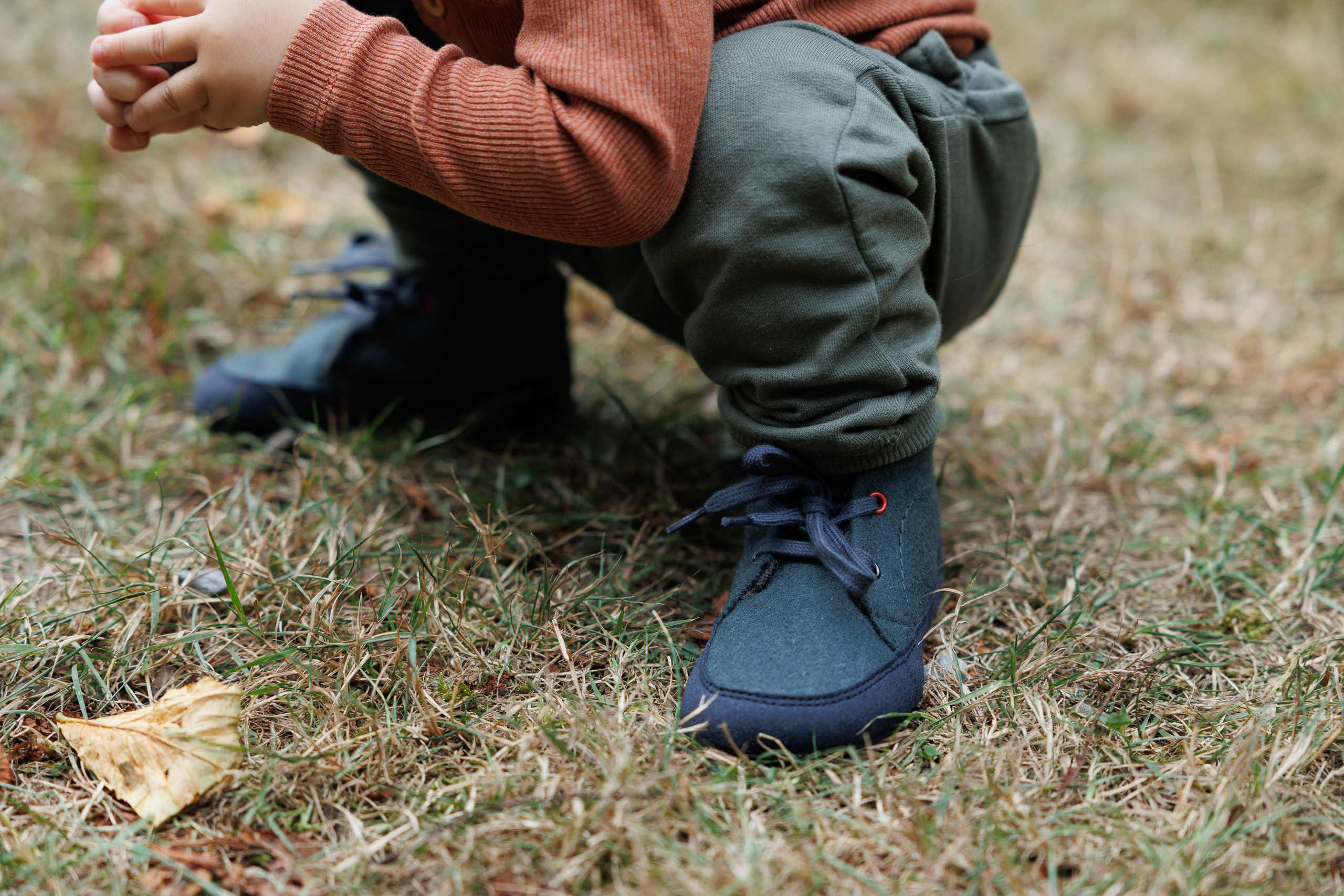When the temperatures drop in autumn, we want warmth and comfort for ourselves and our feet. Wool can be a good helper in this regard. When traditional and eco-social working methods make responsible production possible, it's not only good for us and our feet, but for all those who work to make this comfort possible.
For Wildling Shoes, it is always crucial to be aware of one's own responsibility: We want to contribute to finding answers to ecological and social questions about the future and to promote climate-positive solutions. It's so nice to meet like-minded people who share these values as is the case with Wildling Shoes and Ecolã, a family-run weaving mill in Portugal, which still processes the wool of old native sheep species in the traditional way.
Traditional art of weaving
Thus, from a fabric woven by Ecolã the Wildling Shoes model
Aronia was created. The so-called burel fabric for the upper material was woven in the Ecolã weaving mill in the traditional way from the wool of Portuguese sheep. Burel is a functional fabric that corresponds to the felted wool loden: durable, wind and rain repellent.

Image: Nora Tabel | Wildling Shoes
This fabric tradition is no coincidence: Ecolã is based in the Portuguese town of Manteigas, which is located at an altitude of around 2000 meters in the Serra da Estrela mountains. Because of the long, snowy winters in the mountains, the people who live in this region have been using wool for centuries to protect themselves from the harsh conditions.
In this way, Ecolã carries on a cultural heritage with its work. At the same time, the almost 100-year-old family business sees itself as a preserver of quality, traditional know-how and a natural lifestyle in harmony with the rhythm of the seasons in the mountains.
Cover image: Cosima Meyer | Wildling Shoes



